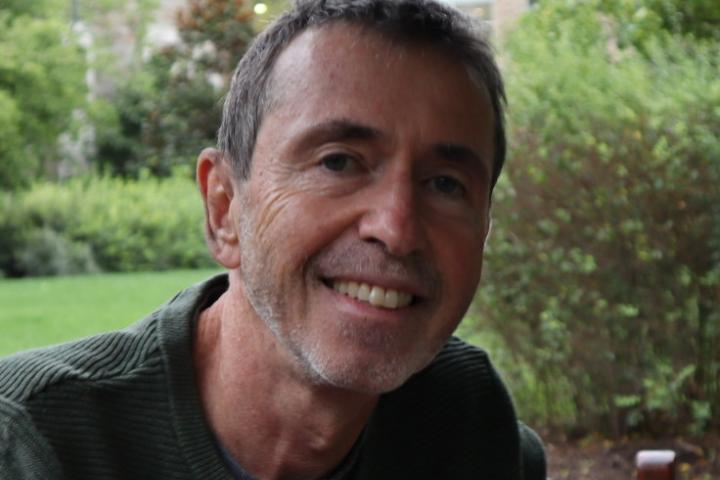
Interview with Derrick Williams, a general pipe-fitter in Detroit, Michigan
Interview conducted May 7th, 2020
Introduction:
Derrick Williams is a general pipe-fitter and has worked in the field since 1987. He works in Detroit, Michigan and is a pancreatic cancer survivor. He repairs natural gas lines underground, and he sometimes needs to go into people’s homes to protect their safety. Because of how badly the coronavirus pandemic has impacted Detroit, he and his partner have to wear hazmat suits when entering households. Derrick is a member of UWUA Local 223.
Full Transcription:
Johnnie Kallas: How long have you worked in the field?
Derrick Williams: I started in July, 1987. And I have been in the street department since 1994.
I am a general pipe-fitter.
J: Could you briefly describe your work?
D: I repair natural gas lines underground. We run new gas rounds, and repair main lines. That’s mostly our jobs. I have been doing this since the 1990s, also on hazardous waste.
J: How has coronavirus impacted work?
D: It’s a mental thing because before you go into a customer’s house you need to question that customer if any of them or family members have had the virus. If they have, and you must go in there, we suit up and put the mask on just to be in there and make sure it is safe on the inside for the utilities.
That’s why we put on the hazmat suits if someone does have it. Face-shield, mask, and everything.
I’ve been able to avoid the virus. I am a pancreatic cancer survivor. I’m really being careful. God bless me I’ve been good.
They gave us the hazmat suit and the face-mask. If we are working on live gas, then we have our gas masks that we use. Full face gas mask.
J: Have you been impacted economically at all?
D: There is no overtime. They say they are in lean mode. We are doing 80 hours over two weeks. Nothing above and beyond.
J: What kind of work have you been doing with your partner?
D: His name is Maurice Davenport. He’s a three-year employee. He’s also in hazardous waste. We both are trying to come in and do an honest day’s work. Trying to follow the lead of the company and how they go about doing things.
J: Have they put you both in a safe position? In Detroit, right?
D: It is bad here. I have lost a couple of church members and I call them family members. I know a couple of family members who have had it and survived it like my brother. He says it is difficult to build your strength back up. I don’t know if the company knows 100% about the virus, nobody really does. They have been trying to not send us into any houses unless it’s an emergency. Most of the stuff we have done is outside.
An emergency is if there is a contractor outside working and they break a line. Or if a plumber breaks a gas line into the house. That’s an emergency. We need to stop it and make repairs.
We may have to go on the inside and interact with people. We might need to bring their gas meter outside and upgrade the line. We may need to go inside and shut the valve off if the meter is on the inside so we can do our outside repairs.
J: In the day-to-day job do you only interact with your partner?
D: Majority of the time it is me and my partner. If you run across a contractor who has broken a line then you may need to come in contact with a contractor.
J: What has your union done to advocate for you guys?
D: They are always trying to help us out. I know their phones have been burning up the past couple of weeks with guys who are concerned. The union is of great help.
If people really get to learn about unions, they will probably join. I’ve been in this for almost 33 years and I am glad I am in a union.
J: What’s Detroit like right now?
D: Being out in the streets and going to different cities working you can see people getting restless staying in the house, especially on a nice day like it is today. Some people are going crazy, some are doing what they are supposed to do. Staying in the house, keeping the mask on, and washing your hands. I really applaud the governor because she’s doing what she’s supposed to do. People are mad at her and going to the capital with guns. If you do what she asks you to do we can open up faster and everything will be safe.
I just want people to be safe out here. This virus is no joke, it’s for real. When you hear about people dying that you know, it hits home. This thing is something. I really pray and hope they find something to cure people from this thing. This is a cold on steroids, it’s very serious. Anytime you can’t go see your loved ones or you need to see them and talk to them through a window. Anytime church is shut down, or restaurants shut down, for the past month, it’s a mental thing. Anytime you hear about people dying and you can’t go to a funeral, or if you have a funeral it’s no more than 25 people. We have never seen anything like this. If we can just stick together we will get past this. I don’t know how long but we’ll get through it.




